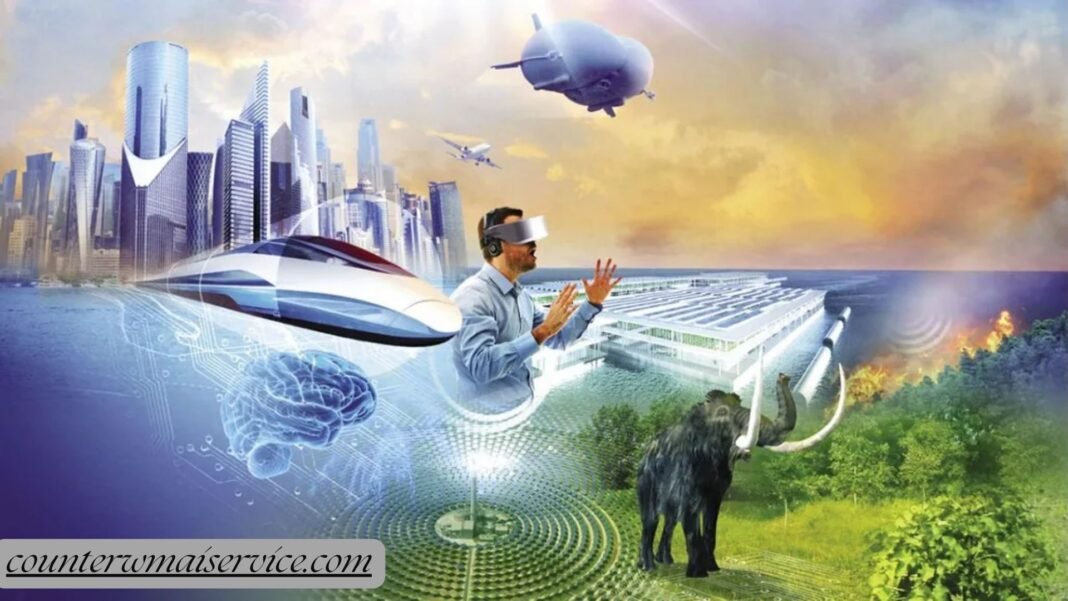In recent years, the urgent need for sustainable practices has driven innovation in technology, leading to the emergence of green tech. This revolution is redefining industries, reducing environmental impact, and promoting a healthier planet. itsreleased.co.uk explores how sustainable technology is transforming our world, from renewable energy solutions to eco-friendly innovations across various sectors.
Renewable Energy: Powering the Future
Renewable energy sources are at the forefront of the green tech movement. Solar, wind, and hydroelectric power are becoming increasingly efficient and affordable, providing clean alternatives to fossil fuels. Advances in solar panel efficiency, battery storage technology, and wind turbine design are making renewable energy more viable for widespread adoption.
– Solar Power: Innovations in photovoltaic cells have significantly increased the efficiency of solar panels. Emerging technologies like perovskite solar cells promise even greater efficiency and flexibility, potentially revolutionizing how we harness solar energy.
– Wind Energy: Modern wind turbines are more powerful and cost-effective than ever before. Offshore wind farms are expanding, harnessing the stronger and more consistent winds over oceans to generate substantial amounts of electricity.
– Hydroelectric Power: New developments in hydroelectric technology, such as small-scale and run-of-the-river systems, minimize environmental disruption while providing a reliable source of renewable energy.
Electric Vehicles: Driving Towards Sustainability
The automotive industry is undergoing a significant transformation with the rise of electric vehicles (EVs). Advances in battery technology, charging infrastructure, and vehicle design are making EVs more accessible and appealing to consumers.
– Battery Innovation: Lithium-ion batteries, the current standard for EVs, are becoming cheaper and more efficient. Research into solid-state batteries promises even greater energy density and faster charging times, potentially revolutionizing the EV market.
– Charging Infrastructure: Expanding the network of fast-charging stations is crucial for the widespread adoption of EVs. Innovations in wireless charging and ultra-fast charging technology are addressing range anxiety and convenience concerns.
– Sustainable Manufacturing: Automakers are increasingly adopting sustainable practices in vehicle production, such as using recycled materials and reducing emissions during manufacturing.
Smart Cities: Building a Sustainable Urban Future
The concept of smart cities integrates technology to create urban environments that are efficient, sustainable, and livable. These innovations address various challenges, from energy consumption and waste management to transportation and infrastructure.
– Energy Management: Smart grids and energy management systems optimize energy use, reduce waste, and integrate renewable energy sources seamlessly into the urban infrastructure.
– Waste Reduction: Advanced recycling technologies and waste-to-energy systems are minimizing landfill use and turning waste into valuable resources.
– Sustainable Transportation: Smart transportation systems, including autonomous vehicles, bike-sharing programs, and efficient public transit, reduce traffic congestion and emissions.
Green Building: Eco-Friendly Construction Practices
Sustainable construction practices are transforming the building industry, reducing the environmental impact of new developments and renovations.
– Energy-Efficient Buildings: Green buildings use innovative materials and designs to maximize energy efficiency. Technologies like smart thermostats, LED lighting, and advanced insulation significantly reduce energy consumption.
– Sustainable Materials: The use of eco-friendly materials, such as reclaimed wood, recycled metal, and low-impact concrete, is becoming more common in construction projects.
– Green Roofs and Walls: Incorporating vegetation into building designs through green roofs and walls helps to improve air quality, reduce urban heat island effects, and enhance biodiversity.
The Circular Economy: Rethinking Consumption and Waste
The circular economy is an economic system aimed at minimizing waste and making the most of resources. This approach contrasts with the traditional linear economy, which follows a ‘take, make, dispose’ model.
– Product Life Extension: Designing products for durability, repairability, and upgradability extends their lifespan and reduces waste.
– Resource Recovery: Innovations in recycling and resource recovery ensure that materials are reused and repurposed, reducing the need for new raw materials.
– Sustainable Packaging: Developing biodegradable and recyclable packaging materials helps to address the growing problem of plastic waste.
Conclusion
The green revolution is driving transformative changes across various sectors, promoting sustainability and environmental stewardship. As technology continues to advance, the potential for innovative solutions to address global challenges becomes increasingly promising. Embracing sustainable technology is not only essential for protecting our planet but also presents significant economic opportunities. The future is green, and the time to act is now.
For more insights on the latest advancements in sustainable technology and their impact on our world, visit ItsReleased.co.uk.


